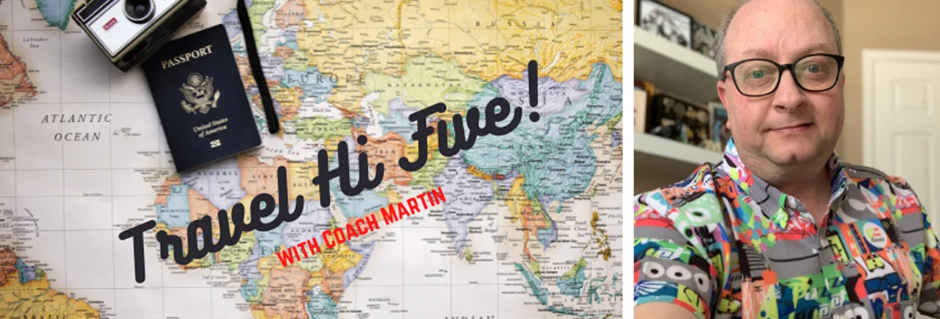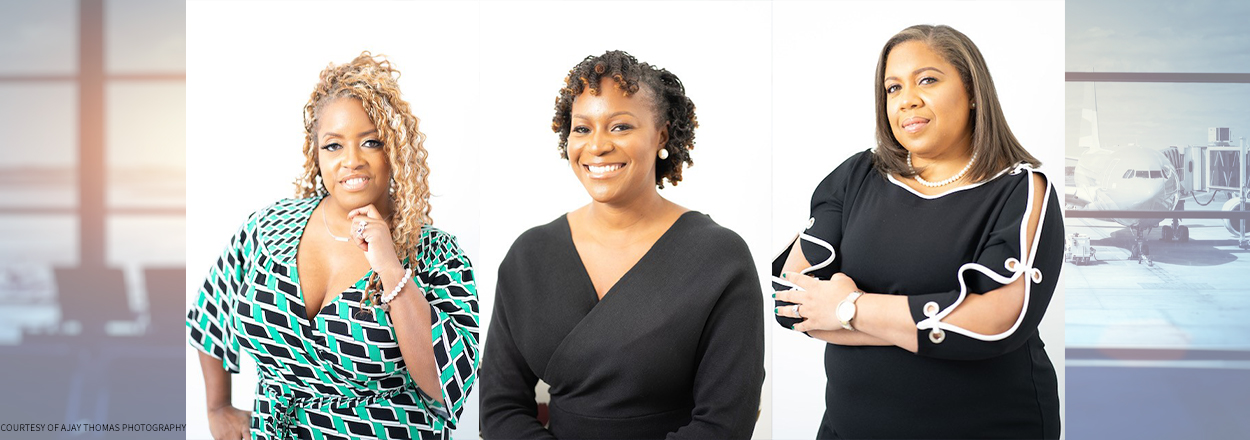Hello, readers! With this being the first edition of the Travel Hi Five in 2025, it seems fitting to wish you all the best in the coming year; personally and professionally. It also seems fitting that, since it is Black History Month, we look at some contributions to travel from five black pioneers that you may or may not have heard about. In some instances I imagine some will “ring a bell” as they say. You may have missed the origin story. I know I learned a few things putting this edition together. So here we go …
The freedom to explore the world is something many take for granted, but for generations, Black travelers faced significant barriers to safe and comfortable travel. Despite systemic discrimination, many Black pioneers fought for inclusive travel, paving the way for more equitable experiences. This Black History Month, we honor five individuals and groups whose contributions have shaped the travel industry and continue to impact travelers today.
The Pullman Porters: Paving the Way for Labor Rights and Luxury Travel
The Pullman Porters were a group of Black men employed by the Pullman Company to serve passengers on luxury railroad cars from the late 19th to mid-20th centuries. Though initially subjected to long hours, low wages and racial discrimination, the Pullman Porters organized under the Brotherhood of Sleeping Car Porters (BSCP) in 1925, led by A. Philip Randolph. This was the first Black labor union to be recognized by a major corporation, setting a precedent for labor rights in America.
Their service and advocacy led to better wages and working conditions for Black workers and elevated the standard of train travel, creating a model for today’s airline and hospitality industries. The Pullman Porters also played a crucial role in spreading information about the Civil Rights Movement by distributing Black newspapers across the country. Their legacy lives on in today’s travel industry, where unions and advocacy groups continue to push for fair treatment of hospitality and transportation workers.
Victor Hugo Green: The Green Book and Safe Travel for Black Americans
During the era of segregation, Black travelers faced the constant threat of discrimination and violence when trying to find accommodations, restaurants and services. In 1936, Victor Hugo Green, a postal worker from Harlem, published "The Negro Motorist Green Book," a guide that listed businesses willing to serve Black patrons. This travel companion became an essential resource, helping Black families safely navigate the country.
Green’s work laid the foundation for modern travel advocacy, highlighting the importance of accessible travel resources. His influence can be seen today in apps and organizations dedicated to inclusive tourism, ensuring that travelers of all backgrounds feel welcome and safe wherever they go. If you want to see this come alive in a visual way watch the 2018 film, "Green Book."
Bessie Coleman: Breaking Barriers in Aviation
Bessie Coleman made history in 1921 by becoming the first African American and Native American woman to earn a pilot’s license. Denied entry into U.S. aviation schools due to racial discrimination, Coleman moved to France to train, returning as a skilled stunt pilot who inspired future Black aviators.
Coleman’s resilience and passion for flying paved the way for the integration of African Americans into the aviation industry. Her legacy lives on in the diversity programs and scholarships supporting aspiring Black pilots today. Airlines and aerospace companies continue to work toward inclusivity, thanks in part to pioneers like Coleman.
Freddie Laker and Charles Clinton Spaulding: Opening International Travel for Black Tourists
While British entrepreneur Freddie Laker is known for pioneering affordable international travel, Charles Clinton Spaulding was instrumental in fostering Black travel and leisure opportunities in the early 20th century. As the president of North Carolina Mutual Life Insurance Company, Spaulding recognized the economic power of Black travelers and encouraged investment in Black-friendly resorts, hotels and travel services.
His efforts helped lay the groundwork for Black travel agencies and tour companies, which continue to thrive today. The rise of Black travel groups and influencers promoting destinations that celebrate Black culture is a direct continuation of Spaulding’s vision.
Cheryl McKissack Daniel: Leading Infrastructure for Inclusive Travel
As the CEO of McKissack & McKissack, Cheryl McKissack Daniel continues her family’s 100-year legacy in construction and infrastructure, focusing on transportation and public works. Her company has been instrumental in projects like airport expansions and public transit improvements that ensure accessibility and efficiency for all travelers.
Her leadership highlights the ongoing need for diversity in the industries that build and maintain travel infrastructure. Ensuring equitable access to safe and efficient travel is part of her mission, influencing future generations of Black engineers and developers.
Why Their Contributions Matter
The impact of these pioneers reaches far beyond their lifetimes. From improving working conditions and advocating for safe travel to breaking barriers in aviation and infrastructure, their contributions continue to shape how people experience the world. Their stories remind us that travel is not just about moving from one place to another — it’s about freedom, accessibility and the right to explore without fear.
As we celebrate Black History Month, let’s honor these trailblazers by supporting inclusive travel initiatives, learning about Black travel history and advocating for continued progress in the industry. Thanks for reading, and here is to your continued success!






Katrina M | 02/24/25 - 10:02 PM
Thank you so much for sharing and keeping our history in the Travel Industry alive. Travel is an area in our African American History that we sometimes take for granted by
| reply